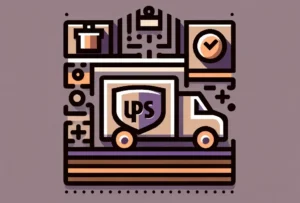Turning the big 3-0 can feel like a milestone marathon where everyone else is sprinting, and you’re still trying to lace up your sneakers. If your career path looks more like a doodle than a straight line, you’re not alone.
This blog post will hand you the compass to navigate the career crossroads you’re standing at now.
Quick Takeaways:
- Reflect on your journey, list activities that invigorate you, and set SMART goals to crystallize your path forward.
- Embrace continuous learning and networking to unlock opportunities and pivot with confidence at any age.
- Consider volunteering, informational interviews, and leveraging soft skills to navigate career transitions effectively.
Where Are You Now?
So, you’re staring down the barrel of 30 and feeling like you missed the memo on how to build a career. It’s like everyone else got their act together, and you’re still trying to figure out which way is up. Sounds familiar? It’s the boat more people than you can imagine are sitting in, so take comfort in knowing you’re far from alone.
Feeling lost in this high-speed world is more common than you might think. Our 20s are marketed to us as the time to take risks and find our path, but when the 30s knock on the door, those unfinished goals may get louder. That sense of urgency is often exacerbated by society’s timeline for success that whispers persistently about where you “should” be in life.
Self-assessment is vital at this juncture. You’ve got a decade of adult life under your belt. What worked for you? What didn’t? Grab a notebook or open a doc and jot down the moments when you felt most alive and in your element. This is the time for some hard-hitting reflection because harnessing those past gems can help light the way forward.
What’s Holding You Back?
We often get shackled by a cocktail of fears, misconceptions, and societal standards. The fear of failure is a biggie – the thought that making a wrong career choice will set us back years is petrifying. Other times, it’s the misconception that passion should have knocked on our door by now, served on a silver platter.
Then there are those external pressures – the ingrained idea that success equals a corner office by 30, or the constant comparison to peers who seem to have it all figured out on LinkedIn. But remember, much of this is smoke and mirrors; everyone is fighting their own battle behind the scenes.
To vault over these roadblocks, start by acknowledging that it’s okay to be a work in progress. Consider this: J.K. Rowling didn’t publish Harry Potter until she was 32. And hey, Colonel Sanders didn’t hit his stride with KFC until he was in his 60s!
Next, debunk your own myths. Success isn’t age-specific. It’s about finding where you fit and thriving there – at any stage of life. Think of your path as a road trip where detours can lead to the best stories.
How Can You Discover Your Passion?
Discovering your passion can sometimes feel like trying to find a needle in a haystack. But it can also be an adventure, if you’re up for it. To unearth what ticks your boxes, consider these actionable steps:
- Make a list of activities that make you lose track of time, and lean into them. Was there a project or topic in college you couldn’t get enough of? Dive back into that area.
- Volunteer with different organizations. It’s a way to try on different hats and see what fits without the commitment of a full-time job. Discovering what you care about can light a fire in your belly.
- Try personality tests like the Myers-Briggs Type Indicator or the StrengthsFinder assessment. They’re not crystal balls, but they can give you a clearer picture of your tastes and talents (16Personalities is a good place to start).
- Start a side hustle. Have a knack for crafting, writing, or social media? Turn your skill into a small business. It can blossom into something more or at least give you practical skills you can apply elsewhere.
- Informational interviews are pure gold. Connect with professionals in fields you’re curious about on platforms like LinkedIn. Most people love to talk about their journey and may provide that unique perspective you need.
One unique tip that’s often overlooked is to curate your media intake. The podcasts you listen to, the books you read, the shows you watch — they all shape your ideas and influence your interests. If you want to find your passion, broadcast inspiration into your life. Choose content that stirs something in you. Sometimes, that one documentary or autobiography can be a catalyst for a whole new career trajectory.
Remember, this is not a solo expedition. Support systems are invaluable — networking groups, mentors, or even online communities can be your compass and road map. Sharing your journey with others broadens your horizons and opens doors that you may not have even noticed before.
Navigating the almost-30 blues isn’t the end of the road – it just means your journey might have a few more twists and turns. Embrace the uncertainty and you might just find that the career you’re meant for is just around the bend. Keep your chin up and your mind open – the best is yet to come.
What Are Your Next Steps?
Feeling adrift as you’re nudging 30 with no stable career in sight? Worry not! Let’s harness that trepidation and turn it into action. Remember, it’s never too late to steer your professional ship towards a fulfilling destination.
First things first – set achievable goals. Begin with the end in mind. Where do you envision yourself in a year or five years? Break down your aspirations into smaller, tangible milestones. SMART goals (Specific, Measurable, Achievable, Relevant, and Time-bound) aren’t just buzzwords; they’re your new best friends.
Embrace continuous learning. Ever heard the phrase “knowledge is power”? It’s accurate, and in today’s ever-evolving job market, upskilling is your key to unlocking opportunities. Whether it’s taking up short courses, obtaining certifications, or going back to school for an advanced degree, the benefits are manifold. Online platforms like Coursera or Udemy are goldmines for resourceful learners.
Don’t underestimate the power of networking. It’s about who you know as much as what you know, and in this digital age, crafting a robust LinkedIn profile is as crucial as perfecting your handshake was a decade ago. Attend industry events, join professional groups, and don’t be shy to reach out to people whose careers inspire you. Real connections can lead to real opportunities.
Starting from the bottom isn’t a setback; it’s a launching pad. Landing an entry-level position can offer invaluable experience and a foot in the door. Show eagerness, learn like a sponge, and your growth potential could surprise you!
Lastly, hone your ‘soft skills’. Emotional intelligence, adaptability, and communication are prized attributes that can set you apart. Enhance these, and you’ll radiate value beyond your years.
Is a Career Change Possible at 30?
Absolutely! Shifting gears career-wise at 30 (or any age, really) is more plausible and prevalent than you might think. The road is rarely without bumps, but change is a vehicle for growth, and you’re equipped to drive it.
The logistics: A career change often means starting from scratch or at least from a lower rung. It can impact your finances and might require an initial investment in education or training. Plan for this. Build a safety net. Having savings reserved can give you the peace of mind to take risks.
Challenges are part of the deal, but they aren’t insurmountable. You might encounter age bias or skepticism, but your diverse experience is a hidden ace. Leverage your past achievements and skills as unique strengths in your new field.
To make the transition smoother, consider these strategies:
- Volunteer or intern in your desired field. This offers a taste of the industry and can lead to employment opportunities.
- Informational interviews can be a goldmine of insights. Chatting with professionals gives you the lowdown on industry needs and how your skills can transfer.
- Crafting a functional resume emphasizes your skills and experiences, drawing away from a traditional chronological work history that may not align with your new path.
Let’s summon some inspiration, shall we? Take Joanna, a seasoned teacher who leveraged her communication expertise to transition into corporate training. After acquiring a few certifications, she found her niche in developing educational programs for businesses, merging her passion for teaching with a fresh audience.
Remember, variety can be the spice of life – and careers. Did you know that the average person changes jobs 12 times throughout their life, according to the Bureau of Labor Statistics? And many of those can encompass sweeping career shifts.
Embody the triple-P mantra – patience, perseverance, and preparedness. Couple that with adaptability, and you’ve got yourself a recipe for success, no matter what age or stage.
Now, here’s a unique tidbit: learn a new language. Not only does it open up whole new sectors like translation or international relations, it also enhances cognitive function, making you a sharper, quicker learner in all areas. Multilingualism can be the extra dash of flair on your resume that makes you unforgettable.
Transitioning from one career path to another isn’t a detour; consider it more of a scenic route, one that could lead to vistas you never imagined, vistas that could very well define the rest of your professional life. So, buckle up, it’s time for an adventure!







